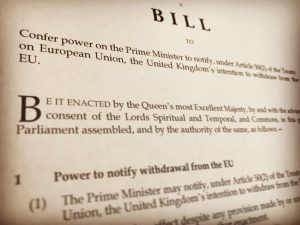By Prof Nicholas Hardwick, Professor of Criminal Justice (Royal Holloway, University of London) and collaborator of the Human Rights Implementation Centre (University of Bristol Law School).
 2017 looks set to be a good year for torturers.
2017 looks set to be a good year for torturers.
Most noteworthy, they have received a glowing endorsement from President Trump. When it was put to him in a recent ABC interview that during his election campaign he had said he would “bring back waterboarding…and a hell of a lot worse” he did not demur. “Would I feel strongly about waterboarding? As far as I am concerned we have to fight fire with fire,” he said. “Absolutely I feel it works”, he went on.
It is true he qualified his remarks by stating that he would defer to the views of his defence secretary, James Mattis, and CIA director, Mike Pompeo, both of whom have said they would abide by the existing prohibition, and it is true there would be formidable political and legal obstacles to overturning the ban on torture. But it cannot be denied that the moral and operational case against torture has been dealt a heavy blow. Torturers worldwide can claim Trump has said torture is acceptable and it works. (more…)









